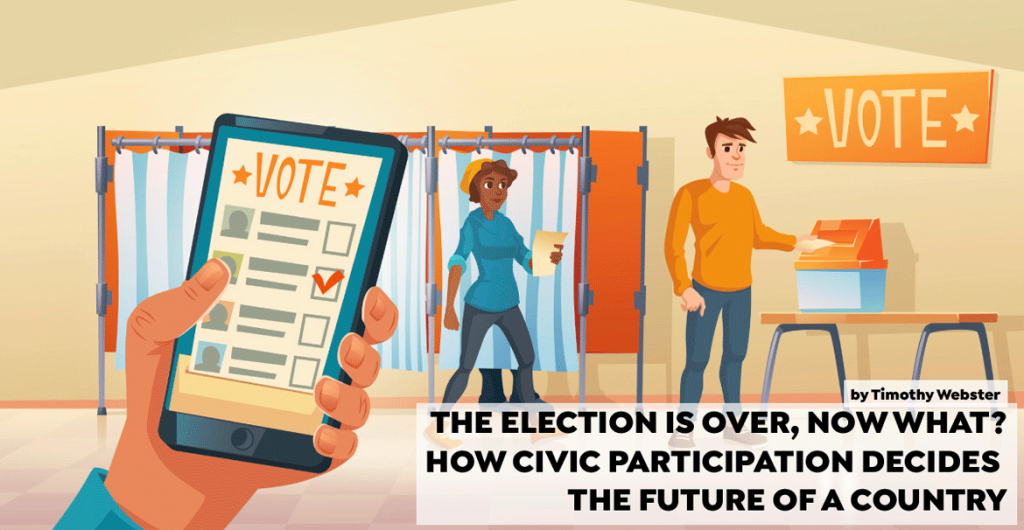
By: Timothy Webster, Rural Policy Analyst at Office of the Governor, North Carolina.
Civic participation on any sort of political spectrum is one of the key ways that democracy works. Everyone needs to be a part of it since the results will affect everyone regardless. Politics and civic participation are closely linked. People get involved working on causes because they see a need and often they are working to make the world better to align with their view of how things should be. This leads people to choose causes that align with their political views and confirms their world views.
For instance, Timothy Webster, the Rural Policy Analyst at the Office of the Governor of North Carolina, became interested in politics at a young age. His family had lots of political discussions about current affairs. This drew him to a career in this field, which he started around the time of Obama’s administration. He sought out organizations where to get progressives elected and developed a strong network this way.
But not all is well and good in the land of opportunities. “I think that civic participation has long trends of increase or decrease and sudden shifts depending on the issues of the day”, Timothy says. “I think civic participation is actually stronger in the US than many would believe but we still suffer from a great deal of apathy. The 2016 election shows the dangers of apathy and the repercussions of that election has led to better participation. Whether this level is sustainable remains to be seen.”
Despite this, it is a fact that young people are showing interest in politics. It is true that there are many disengaged people from all age groups, but there is a renewed interest in participation by young people. You can usually find an issue or two that young people become passionate about which leads them into participation where they become versed on many other issues. Gen Z is showing a great interest in participation and their activism has been some of the most effective to date. An example is students who are active in pushing for better gun control laws.
It is necessary that young generations participate in politics and civic participation in order to attain a diverse country. The challenges that the US and the world face from climate change and violence will not get better without young people’s participation. The current generation in the majority, baby boomers, has not heeded the warnings of the scientific community and, as a result, things like climate change and gun violence are escalating. The only way to change this is to get more young people involved, build the bench of talent, and get them elected to all offices in order to create the change needed.
The US, like any other country, will always need more civic participation. It is an incredibly large and diverse country with so many needs and those needs will not be filled until everyone is doing their part to make things better. When people from all groups are involved in their community and the decisions of their government the decision made and the help rendered are better attuned to all community members.
After a year of the pandemic the world needs to be better connected again. While we have heavily utilized technology to keep things operating, the loss of in-person connection has created a great need to reconnect both for the integrated fabric of the community and the personal needs of people.
But things are changing. The United States of America has recently seen the change of its administration. What will the future hold amidst the increase of civic participation?
“I am cautiously optimistic”, says Webster. “One great effect of the Trump administration was to get people involved and active who have traditionally sat on the sidelines. The backlash to that administration was so great that we had the highest levels of participation in nearly a century. It is my hope that people do not go back to apathy or complacency just because the country is not on fire anymore. I believe we have the potential for the Millennial and GenZ generations to have permanently high levels of engagement and we must work very hard to achieve that.”
The future is now.
